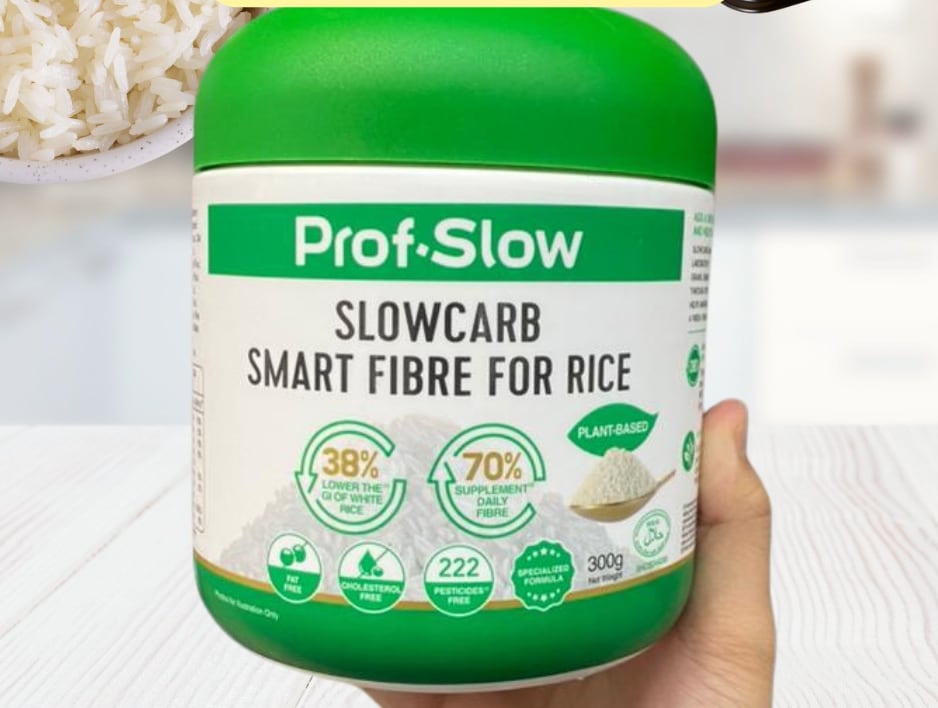GLP-1 driving high protein yogurt demand
Protein is traditionally associated with sports nutrition, but the use of GLP-1(glucagon-likepeptide-1) medications has also led to strong demand for protein - in particularly high protein yogurt.
The uptake in high protein yogurt is to tackle the side effects of GLP-1 medications, such as muscle loss.
As compared to other formats, yogurt is also preferred because it is perceived as healthy among Asian consumers.
“When we ask consumers what do they perceive as healthy and what do they consume frequently, yogurt stood up high in Asia,” Xiaoyu He, senior product strategic manager, AsPac at Glanbia Nutrition said.
“High protein yogurt is especially fast-growing in markets where GLP-1 use is popular, because GLP-1 users are losing muscles and they need to compensate it through a higher protein intake.”
Thailand growing faster than anticipated
Yogurt aside, the company also observed opportunities for high protein savory snacks, protein bars, and high protein beverages.
In Thailand, for example, there are already high protein beverage - with 30g per bottle - that can be found in the market.
“Thailand is a very exciting and innovative market for high protein beverages and this has happened faster than anticipated. You can even find drinks with 30g of protein per bottle.”
An example of such a product is Thai brand Moove’s High Protein Lactose Free Plain, which contains 30g of protein in a 310ml bottle.
Weight management a huge area for protein
While South East Asia is a fast-growing region for protein functional foods and drinks, within Asia, the bulk of protein demand is still coming from South Korea, Japan, and China.
Again, it is mainly weight management that is driving protein uptake, alongside other factors such as healthy aging, sports nutrition, and active lifestyle.
“Generally we see protein needs going weight management, it’s a huge trend,” said He.
Format innovations
Since consumers from different regions have different demands, the company has also launched high protein functional foods in different formats - ranging from better-for-you baked goods, to savoury chips, breakfast cereals, clear protein water, to yogurt.
With technological advancements, He said that the company can now make protein bars that contain protein in each layer of the bar.
This is to meet consumers’ demand for better tasting protein bars.
“Protein bar is our global core strength. But what we see now is that the category is evolving. In particular, the taste requirement is getting higher.
“For us, we can now add protein into each layer of the bar: in the chocolate coating, in the crispy and crunchy layer, in the caramel layer, in the fruit jam, and in the dough.
“This new technology makes protein bars taste confectionary like,” she said.
Another advancement, is the ability to make whey protein heat stable. This allows whey protein to be made into ready-to-drink formats, she said.
“Whey protein is high in leucine and essential amino acids, but there was a lack of heat stable whey protein products in the past, and so, there were very limited opportunities to consume whey protein in RTD formats.
“We have launched OptiSol 1007, which is heat-stable and allows 8% of protein in a bottle of drink. Since there is no need to use stabilizer, this can also be considered a clean label product,” she said.
Probiotics wanted for weight loss, but AKK lesser known
China’s probiotics ingredient firm Biogrowing was another company that noticed a strong demand for weight management supplements in the market.
“We have spoken with clients to find out what functionalities do they hope to see from the use of probiotics, and weight management is one of them,” said Dr Matt Guo, principal scientist at Biogrowing.
He noticed that although Akkermansia muciniphila is already a well-known strain for weight management in China and US markets - even termed as ‘skinny probiotics’ in the former - knowledge of Akkermansia (AKK) is at the nascent stage in the South East Asia region.
At the show, the company showcased two AKK strains - a heat-killed strain known as AKK WST01 and a live probiotic strain known as AKK BG001.
“The two strains have similar functions - mainly for gut health and weight management. However, there are differences in terms of the product applications,” he said.
He said that the heat-killed version, being stable in high temperature, can be applied to hot beverages such as hot coffee.
Being a heat-killed strain, its benefits come from metabolites released by probiotics during fermentation.
Aside from hot coffee, it can also be made into conventional capsules which not only contain the heat-killed probiotic, but also other actives such as green tea extract epigallocatechin gallate (ECGC) and vitamins.
“In general, consumers will be more interested in products formulated with multiple active ingredients.
“They see it as not just taking probiotics, but also prebiotics and natural extract, which they would perceive as a more holistic formulation,” he said, adding that there were plans to develop gummy and beverage concepts further down the road.
For its live probiotic strain AKK WST01, the company also conducted a human clinical trial, with findings published on Cell Metabolism in March.
The 12-week randomized, double-blind, placebo-controlled trial involved 58 participants with overweight or obese type II diabetes.
The intervention group took AKK-WST01 at 50bn CFU daily, while the control group took placebo.
Changes in their body weight and fasting plasma glucose levels were measured before and after the trial to assess the effects of probiotics on weight management.
Findings showed that supplementation of the strain could improve weight, metabolism, and fat oxidation in participants with low levels of Akkermansia muciniphila in their gut.
This is also aided by evidence showing that the strain had successfully colonized in people with low levels of Akkermansia muciniphila in their gut.
Weight loss: Consider emotional support
According to Monteloeder’s observations, Asian consumers have more holistic requirements when it comes to weight management - it is not just about the appearance, but also addressing the wider metabolic health and emotional needs.
This is in contrast to the US or the UK, where consumer needs are solely focused on targeting obesity when it comes to weight management.
“In Asia, consumers are more focused on holistic, healthy metabolism, and about slimming – about how they feel, how is their appearance, and so on,” said Stephanie Guillén Díaz, chief commercial officer at Monteloeder.
“Here, the home shopping channel is booming. Because it’s linked to how you appear. It’s more like an emotional buy rather than looking for a weight management product.”
To address both weight management and emotional health, Mariana Ortega, science marketing manager said that the company has been working on gathering consumer insights, and aimed to publish them later this month or next month.
This is because beyond weight loss, she said that consumers would also needed to be emotionally satisfied with taking a product for long term adherence.
“Yes, you can prove weight loss, but if there is no mental health or wellness and if consumers do not feel happy, they will stop taking the supplements.
“For the ones who really want to lose weight, they will need the emotional support...You need to be happy and you need to be aware in order to follow the process to weight loss or to keep healthy. And not many food supplements for weight loss keep people happy,” she said.
For its consumer insights, the company has been surveying how the supplementation of Metabolaid could influence their taste buds - whether they prefer to eat less salty, less sweet, or if they would become more physically active.
“I would say to support consumers in a more emotional way. It’s a more holistic approach ultimately,” Díaz said.
The company’s weight management ingredient is a patented blend of lemon verbena and hibiscus extract marketed as metabolaid.
It has been studied for not only weight management, but also the mechanisms associated with it - such as downregulating the hunger hormone ghrelin and increasing GLP-1.
Its first clinical trial that showed GLP-1 increase was in 2018, where supplementation of the extract has shown to increase GLP-1 by 60% higher than placebo, said Diaz.
“It works not only on the GLP-1 hormone but also different mechanisms such as AMPK pathway, and also targeting abdominal fat, fat burning, and so on,” she said.
To support the weight loss journey holistically, she said that the company has also conducted clinical trials to assess the plant extract’s benefits for blood pressure, cholesterol levels, and gut health.
So far, there are eight clinical studies and 10 publications on the plant extract.
“We did not want to stop at weight management, because when we are talking about weight loss, overweight, and obesity, it is not only about the weight.
“There are also blood pressure issues, high cholesterol levels, and gut disease. We also have clinical trials that prove the benefits of lowering blood pressure to a healthier level, and also decreasing bad cholesterol, or LDL cholesterol, so we have an holistic way to support the weight loss journey,” said Diaz.




